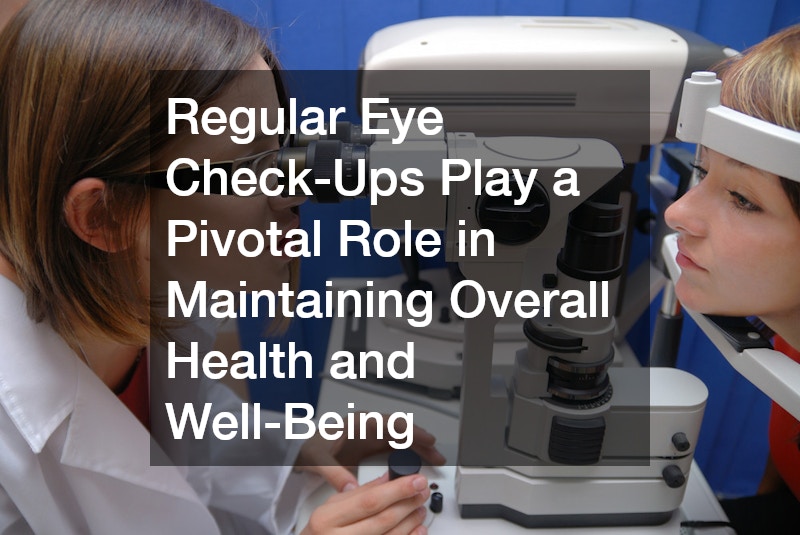Your eyes are a gateway to your overall health, and visiting a local eye doctor for the first time can be an enlightening experience. In this article, we will guide you through what to expect during your appointment, ensuring you are well-prepared and at ease.
Regular eye exams are essential for diagnosing vision problems early and maintaining optimal eye health. Having a comprehensive understanding of the typical procedures and evaluations performed during an eye check-up will make your visit smoother.
As we delve into common tests and preparations, you’ll gain insights into the various components of an eye exam. Our goal is to equip you with knowledge and confidence as you embark on this important health journey.
1. What Tests Will Be Conducted?
A. Standard Vision Tests
During your initial visit, standard vision tests such as the Snellen chart will be administered. This test checks your ability to see clearly at various distances, playing a crucial role in determining prescription needs.
Another assessment is the refraction test, which identifies the most accurate lens power needed to compensate for refractive errors like nearsightedness or farsightedness. These tests ensure that any necessary corrective lenses will improve your vision effectively.
In addition to the Snellen and refraction tests, your eye doctor might also test for color vision deficiencies. Identifying issues like color blindness early can help in adjusting educational and occupational approaches suitably.
B. Eye Health Evaluations
Eye health evaluations during your visit may include tests like intraocular pressure assessments. This specific test is vital in detecting glaucoma, a potentially sight-threatening condition if left untreated.
The eye doctor will also conduct a retinal exam using tools such as an ophthalmoscope. This examination helps in evaluating the health of the retina and optic nerve, which can reveal signs of diseases like diabetes or hypertension.
These examinations provide a comprehensive picture of your eye health, as some conditions may not affect vision initially but can be detected through detailed evaluations. Early detection is crucial in preventing further complications.
2. How Long Will the Appointment Last?
A. Factors Affecting Duration
The duration of your eye doctor appointment can vary based on several factors. Your personal medical history, along with any specific vision issues, can impact the time taken for a thorough examination.
The presence of complex or additional tests may also extend the appointment length. For instance, if the eye doctor decides that pupil dilation is necessary, it adds time both for administering the drops and for them to take effect.
Emergent issues discovered during the exam can also contribute to a longer appointment. Addressing these concerns typically requires additional testing or more extensive discussions with your doctor to ensure comprehensive care.
B. Typical Appointment Timeline
A typical eye examination usually lasts between 30 minutes to an hour. This timeframe allows for a standard battery of tests, including both vision and health assessments.
Once you check in, your detailed eye exam begins with a discussion about your vision concerns and health history. This initial conversation helps tailor the subsequent tests to focus on areas pertinent to your needs.
Post-examination, your doctor will discuss findings and any recommendations regarding eyewear or follow-up care. They might also schedule future appointments based on your eye health needs and results.
3. What Should You Bring to the Appointment?
A. Necessary Documentation and Records
To ensure a smooth visit, it’s crucial to bring the necessary documentation. This includes your insurance information, which helps in processing the financial aspects of your appointment seamlessly.
Having copies of previous prescriptions and any relevant medical records can provide your eye doctor with a comprehensive understanding of your eye health history. This context supports informed decisions during your exam.
Bringing these documents allows for more personal and precise care, tailored specifically to your medical history and previous vision interventions. It thus leads to a more effective and personalized eye care experience.
B. Additional Items to Consider
Depending on the procedures planned, consider bringing additional items. For example, sunglasses are a good idea if you know your eyes will be dilated, as they can help with sensitivity to light after the exam.
Additionally, bringing your current glasses or contact lenses can provide a useful comparison for the eye doctor. This helps in evaluating how your prescription needs may have changed or remained consistent.
These considerations enhance the thoroughness of your visit and contribute to selecting the most suitable corrective measures. It’s all about taking care of your eyes comfortably and effectively.
In summary, being prepared for your first visit to a local eye doctor involves understanding the different tests, the potential duration of the appointment, and what to bring. Knowledge is power when it comes to ensuring your eyes stay healthy and your vision clear.
Regular eye check-ups play a pivotal role in maintaining overall health and well-being. By preparing adequately, you equip yourself with the best tools for a successful visit and ongoing eye health management.
Taking the time for these visits is a step towards prioritizing your health, reinforcing the importance of protecting your vision for the long term. A proactive approach ensures lasting visual health.






